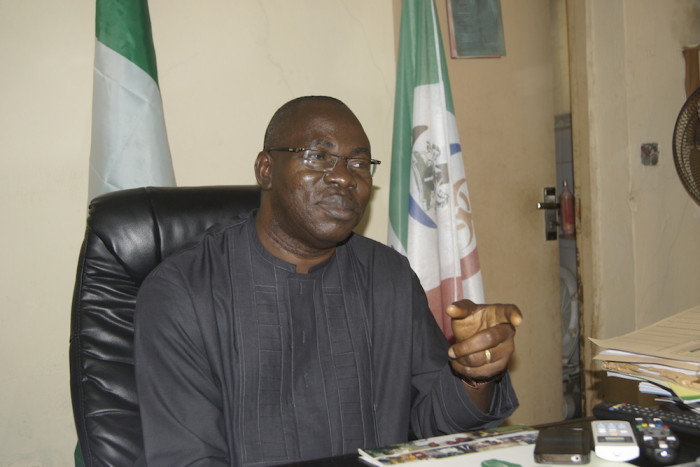The Second National Biosafety Conference in Nigeria scheduled to hold between 10th and 11th November, 2016 in Abuja, the federal capital city, will address the twin objectives of food security and economic growth.

Organised by the National Biosafety Management Agency (NBMA) in collaboration of the Raw Materials Research and Development Council (RMRDC), the theme of this year’s conference is “Biosafety, Food Security and Economic Development in Nigeria”.
The National Biosafety Management Agency Act 2015 is the law that established NBMA to, among other things, be charged with the responsibility for providing regulatory framework, institutional and administrative mechanism for safety measures in the application of modern biotechnology in Nigeria.
The law is to operate in accordance with established International laws, procedures and rules that govern the global adoption of the genetically modified organisms (GMOs) for the benefits of farmers, without adverse effects on human health and the environment.
The occasion is expected to be attended by Minister of Environment, Amina Mohammed, who will serve as the Special Guest of Honour and Minister of Science and Technology, Dr Ogbonnaya Onu, who will be the Keynote Speaker. Director-General of RMRDC, Hussaini Ibrahim, and that of NBMA, Rufus Ebegba, will be Chief Host and Convener respectively.
The objectives of the conference, according to Dr Ebegba, in an interview, are “to enlighten stakeholders on the National Biosafety Act and the National Biosafety Management Agency’s mandate; bring regulators and scientist together for information sharing on the role of NBMA with the national mandate to regulate modern biotechnology and genetically modified organisms (GMOs) in Nigeria; to develop and maintain professional standards in the field of biosafety with a view of developing national academic biosafety curriculum.”
According to him, “other objectives are to advance biosafety as a scientific discipline through education and public awareness; to provide stakeholder sustained opportunities for biosafety communication, education and participation in the development of standards, guidelines and regulations; to expand Biosafety awareness and promoting safety at work place in order to reduce the potential for occupational illness and adverse environmental impact; to enlighten the media on the need to disseminate right information to the members of the public, on issues of Biosafety and GMOs for the general public not to be ill informed and to educate scientists on the need for responsible modern biotechnology engagement.”
Ebegba stressed that, in order to achieve the two-day conference objectives, which also serves as information sharing platform, a combination of key note address and plenary sessions would be employed through power point presentations.
The NBMA DG further said that stakeholders on GMO regulations would share information together and the media and scientists would be enlightened through different topics in Biosafety. “There is the veritable need for collaboration between regulators, researchers and international partners on the issue of biosafety capacity building for national development and building trust in the technology. Also, there is the need for professional standards in the field of biosafety with a view to develop national academic biosafety curriculum,” he said.
The expected outcomes of the conference will include but not limited to strengthened awareness and information sharing through conference; increased collaboration for national development through proper science based biosafety regulation; enlightened media on the need to disseminate right information to the members of the public, on issues of Biosafety and Genetically Modified Organisms for the general public not to be ill-informed and desired Biosafety curriculum.
While the NBMA Act of 2015 is the only safety valve in the adoption of modern biotechnology, the deployment and use of GMOs for national economic development in Nigeria, Ebegba added that the Act mandates the Agency to provide a regulatory framework, which include institutional and administrative mechanisms that would adequately safe guard human health and the environment while harnessing the potentials of the technology for the benefit of Nigerians.
Hajara Yusuf, Institutional Biosafety Officer with the National Biotechnology Development Agency (NABDA), explained that “NiBSA was inaugurated in 2010 as a response to global calls to institute biological safety measures to prevent unethical use of genetically modified organisms and other bio-threats. The NiBSA is a professional association, which aims to congregate practitioners to promote and facilitate the sharing of biosafety information in Nigeria.”
The growing world population is a major challenge that has led to increased demand for food, feed, fibre and fuel. It has also led to loss of agricultural land, shortage of water for irrigation, climate change, increasing demand for renewable fuels, reduced agro-biodiversity and loss of natural habitats and biodiversity.
As a result, Ebegba said, “The application of modern biotechnology under a legal framework can be a valuable tool for addressing the several challenges arising from national population growth and giving consumers in Nigeria the sense of choice and availability of quality modern biotechnology products under a sustainable environment.
“Responsible and safe practice of modern biotechnology under a legal biosafety regime has become a hallmark of economic drive globally and Nigeria as a nation should take advantage of the safe aspects of the technology. The Act now paves the way for Institutions to carry out modern biotechnology innovation,” Ebegba concluded.
By Abdallah el-Kurebe
